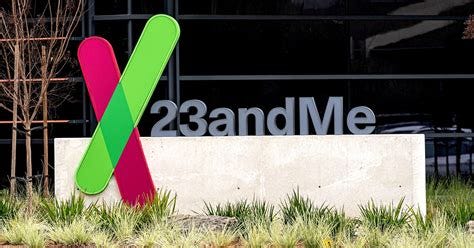In mid-September 2024, the news broke that all of the independent directors on the board of 23andMe had resigned in one fell swoop. According to the memo from CEO Anne Wojcicki, this mass resignation followed a strategic review, which supposedly provided a new direction for the company. What makes this story fascinating—and a bit suspicious—isn't just the timing but the broader context of 23andMe's recent trajectory and its positioning within the biotech and personal genomics industries.
Let’s unpack this.
The Memo: A Glossing Over?
Anne Wojcicki's memo about the departures didn’t exactly inspire confidence. It emphasized that the resignations were expected and framed them as a normal part of a strategic pivot for the company. This sounds like corporate speak to reassure investors, but when all the independent directors resign simultaneously, it's usually a sign of deeper troubles behind the scenes.
In the memo, Wojcicki notes:
"They were incredibly supportive of the company and our mission to empower individuals through access to their genetic information."
This is a standard compliment in cases like this, but the vagueness is worth noting. For such a significant shift to happen, the public deserves more than niceties.

Timing and Turbulence
The timing is key. This exodus happened while 23andMe has faced heightened scrutiny, from growing concerns about data privacy to questions about the ethical implications of selling genetic information to third parties. Consumer trust has become increasingly fragile in the DNA testing space, especially as it becomes clearer just how valuable genetic data is to both the healthcare and tech sectors.
Moreover, the resignations come on the heels of the company’s supposed financial struggles. 23andMe has struggled to sustain the level of hype and growth it experienced a few years ago when consumer DNA testing kits were flying off the shelves. After going public through a SPAC (Special Purpose Acquisition Company) deal, which has its own criticisms, the company has faced increasing pressure from shareholders to deliver returns in an uncertain market.

This begs the question: What else was going on behind the scenes?

A Perfect Storm for Exit
When all the independent directors—whose job is to provide oversight and accountability—abruptly leave, it's not just strange. It's potentially alarming. One of the main responsibilities of independent directors is to protect shareholders and keep the company on course. Their simultaneous resignation is the corporate equivalent of the lifeguards walking off the beach together, leaving everyone else to fend for themselves.

It suggests that, despite whatever is claimed in the public statement, there was a major disconnect between the board's vision and the company's new direction. Did they see ethical conflicts they couldn't stand behind? Did they disagree with potential future deals? Or did they feel like they couldn’t genuinely provide oversight anymore? In situations like this, the remaining leadership (in this case, Wojcicki herself) often tries to downplay the significance, but the reality is usually more complex—and worrisome.
The Privacy Problem: A Reason to Run?
One potential factor driving these departures could be the increasing scrutiny of genetic data privacy. For years, critics have raised concerns about how companies like 23andMe handle sensitive genetic information. As 23andMe looks to pivot its business model (as Wojcicki hints in her memo), this could involve selling or sharing genetic data in ways that might make the independent board members uncomfortable.
Independent directors often have reputations to protect and personal values that may not align with controversial corporate strategies. If 23andMe is moving in a direction that potentially compromises user privacy or transparency, it’s easy to see why they’d jump ship.

It's worth recalling that 23andMe has already entered into high-profile partnerships with pharmaceutical companies like GlaxoSmithKline. These partnerships allow drug makers access to genetic data to develop new therapies. While this can have beneficial outcomes for medical advancements, it also raises ethical questions about consent and the monetization of personal health data.
If the company’s new strategy further entangles genetic data with big pharma or even other tech giants, this could have been enough to make the independent directors uncomfortable to the point of resignation. There’s no reason to believe they couldn’t have walked out for ethical concerns.

Stepping Away from a Sinking Ship?
Let’s face it—23andMe is struggling. The DNA testing craze has lost its luster, and consumer interest has waned significantly in recent years. After the initial boom, fewer people are willing to pay for something that no longer feels novel, and many have grown wary of what companies are doing with their data. Despite their high-profile partnerships, their stock performance has been less than stellar since going public via SPAC.

In situations like this, independent board members may see the writing on the wall. If they believe the company is set for a turbulent future, leaving now—before things get worse—might be a strategic move to distance themselves from the fallout. Resigning en masse also signals a lack of confidence in the current leadership or future direction, even if they can't openly admit that.

A Precursor to Controversy?
While nothing specific has been revealed (yet), this kind of mass exodus can often be a precursor to bigger scandals. It’s hard not to wonder: Are there impending lawsuits or regulatory challenges? Could there be brewing internal conflicts that made the environment untenable for the independent board members?
Without more transparency, it’s impossible to know for sure. But corporate shakeups like this don’t happen in a vacuum. It’s rare for the entire independent board to walk out unless they have serious concerns—whether they be ethical, legal, or financial.

The Wojcicki-Giving Pledge Connection
Here’s where things get even more interesting. Anne Wojcicki, the CEO of 23andMe, is a member of the Giving Pledge, an initiative started by Warren Buffett and Bill Gates to encourage billionaires to give away the majority of their wealth. On the surface, the Giving Pledge sounds like a charitable effort, but many, myself included, believe it is deeply tied to a globalist agenda.

The Giving Pledge and its members often push for a global framework through initiatives like Agenda 2030 and the Sustainable Development Goals (SDGs), which can be viewed as part of a broader effort toward a one-world government under the guise of philanthropy. When you consider Wojcicki’s role in this network, it’s not hard to imagine that the "strategic review" leading to the resignations could have broader implications tied to globalist policies around health data, digital ID initiatives, and centralization of control over personal information.
It’s also worth noting that Anne Wojcicki was married to Sergey Brin, co-founder of Google and one of the most powerful figures in the tech industry. Google itself has faced scrutiny over data privacy issues and is deeply embedded in global efforts related to AI, data collection, and control over digital spaces. Could 23andMe’s next steps be influenced by Wojcicki’s connections to Big Tech and the globalist elite?
Why They Really Could Have Quit
At the end of the day, the independent directors could have resigned for a variety of reasons, all of which point to discomfort with where the company is heading. The strategic review mentioned by Wojcicki likely unveiled plans or changes that crossed a line for these board members. Whether it was related to privacy concerns, partnerships, or just a shaky financial future, the abrupt resignations make it clear that they didn’t want to stick around to find out.

The weirdness of this story lies not just in the act itself, but in how much we aren’t being told. When a company that deals with something as sensitive as genetic data loses all of its independent oversight in one go, that’s more than just a strategic pivot—it’s a signal that something deeper is going on. The real question is: What are they not telling us? And why did these directors feel the need to leave now?

Final Thoughts
Time will tell what’s truly happening at 23andMe, but it’s hard not to be skeptical of the official narrative. Whether they left because of ethical concerns, strategic disagreements, or to distance themselves from impending controversy, one thing is clear—this wasn’t just a casual restructuring. The weirdness of it all points to a much bigger issue, and it’s likely we’ll see more details come to light soon. For now, the rest of us are left wondering: Was this just business as usual, or the start of something much more troubling?













One sister was used to censor people on YouTube during the mass culling event and the other sister collected people's biological materials during it. Just sayin'.
Or they resigned because they will have breached their fiduciary duty (had they stayed on) and that might have opened them up to personal law suits. Board members rarely care about ethics. It is money and bragging rights to make more money that powers them. So if all 7 board members resigned en masse, it probably means she did something that makes them partners in crime. So they ran away.
Now this opens a can of worms. Couldn't they see this stuff coming? It raises questions about how much attention they have been paying. It also means every company for which they are on the board, is also probably doing fraud simply because these people have no time for details.